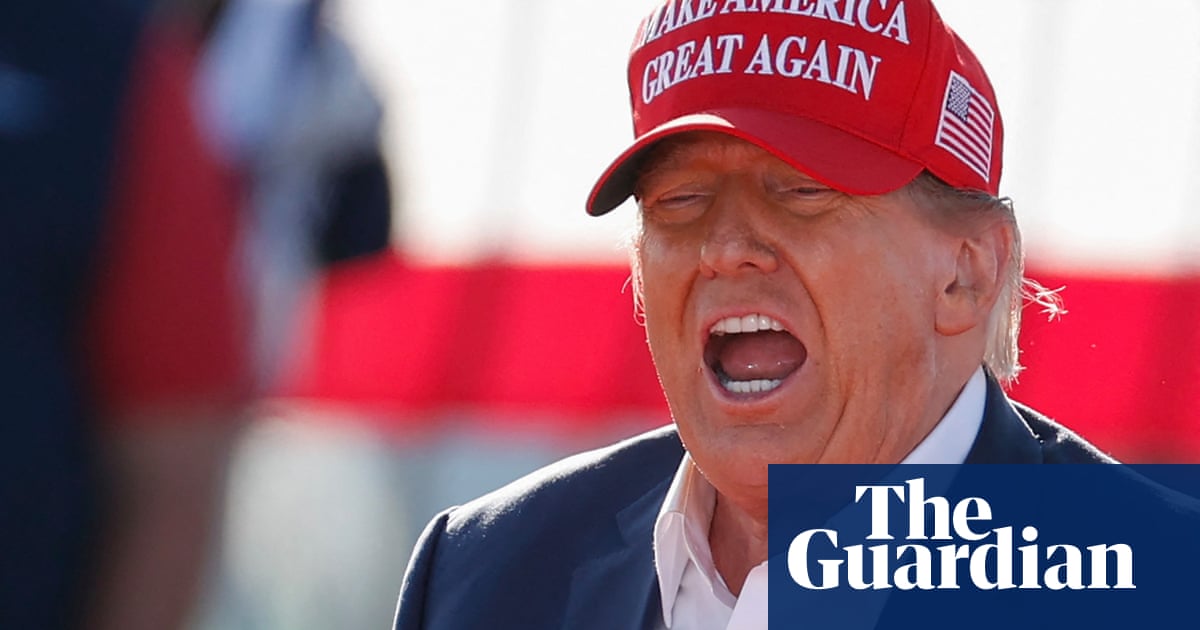Excerpts from his speeches do not do justice to Trump’s smorgasbord of vendettas, non sequiturs and comparisons to famous people
Donald Trump’s speeches on the 2024 campaign trail so far have been focused on a laundry list of complaints, largely personal, and an increasingly menacing tone.
He’s on the campaign trail less these days than he was in previous cycles – and less than you’d expect from a guy with dedicated superfans who brags about the size of his crowds every chance he gets. But when he has held rallies, he speaks in dark, dehumanizing terms about migrants, promising to vanquish people crossing the border. He rails about the legal battles he faces and how they’re a sign he’s winning, actually. He tells lies and invents fictions. He calls his opponent a threat to democracy and claims this election could be the last one.
Trump’s tone, as many have noted, is decidedly more vengeful this time around, as he seeks to reclaim the White House after a bruising loss that he insists was a steal. This alone is a cause for concern, foreshadowing what the Trump presidency redux could look like. But he’s also, quite frequently, rambling and incoherent, running off on tangents that would grab headlines for their oddness should any other candidate say them.
Journalists rightly chose not to broadcast Trump’s entire speeches after 2016, believing that the free coverage helped boost the former president and spread lies unchecked. But now there’s the possibility that stories about his speeches often make his ideas appear more cogent than they are – making the case that, this time around, people should hear the full speeches to understand how Trump would govern again.



I actually think it’s better to read it. When you hear it spoken you instinctually give a speaker the benefit of the doubt that a sentence fragment is going somewhere when they have the intonation to imply such.